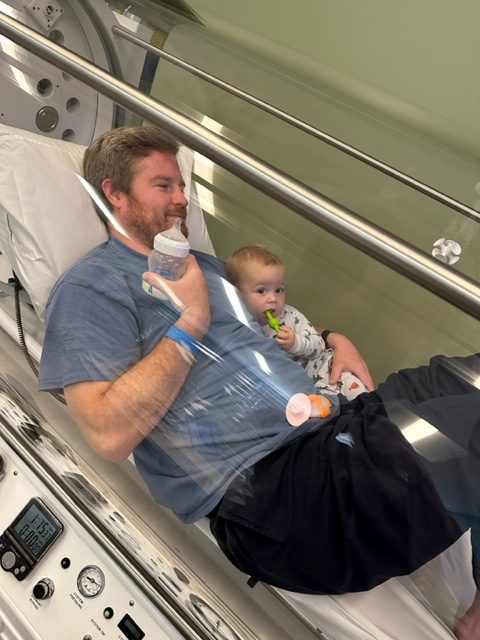Unlock renewed healing for failed flap and skin grafts with Baromedical Associates’ hyperbaric oxygen therapy in the Dallas Metro Area. Our specialized services provide an innovative solution to address the complexities that arise from unsuccessful flap and skin graft procedures.
Take the crucial first step towards renewed hope and restoration by scheduling your consultation today.
A skin graft is a surgical procedure in which a piece of healthy skin is taken from one area of the body, known as the donor site, and transplanted to cover or replace damaged or lost skin in another area, known as the recipient site.
Skin grafts are commonly used to treat extensive wounds, burns, or areas where the skin has been surgically removed. The graft serves as a temporary or permanent covering, providing protection, promoting wound healing, and restoring function and appearance to the affected area.

Tissue hypoxia and impaired healing can happen when the graft or flap does not receive an adequate oxygen supply. With HBOT, patients breathe 100% pure oxygen in a pressurized chamber, which can significantly increase the oxygen levels in the bloodstream.
This oxygen-rich environment promotes angiogenesis, the formation of new blood vessels, and improves tissue oxygenation, facilitating the healing process. HBOT also has anti-inflammatory effects, reduces infection risk, and supports the immune system.
There are several different types of skin grafts used in surgical procedures. The main types include:
A healthy skin graft or flap will exhibit several signs that indicate successful graft take and proper healing. These include:
Embrace a path to healing and restoration with Baromedical Associates’ hyperbaric oxygen therapy for failed flap and skin grafts in the Dallas Metro Area. Our dedicated team of certified technicians and multi-disciplinary physicians is committed to providing innovative solutions for those facing the challenges of unsuccessful procedures.
Contact us now to book your appointment and discover the exceptional benefits of our hyperbaric oxygen therapy for failed flaps and skin grafts.